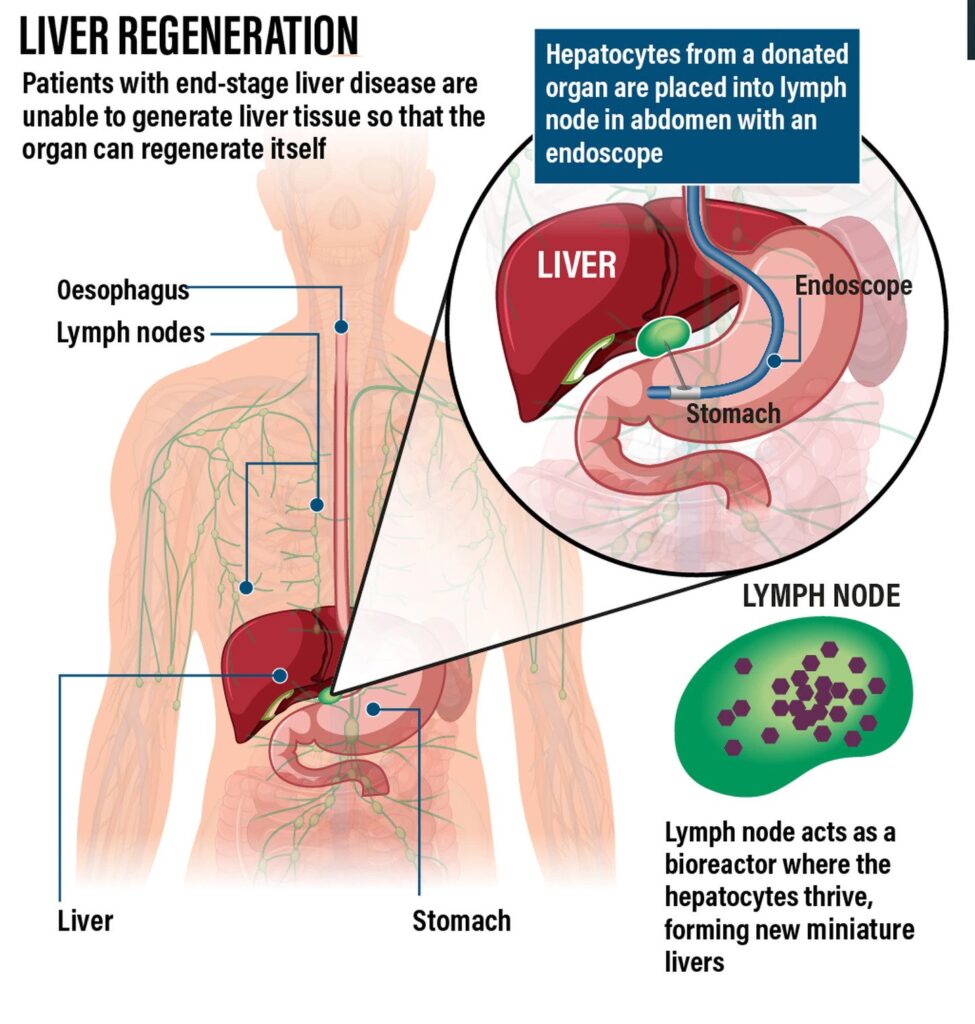Liver Transplantation is the standard of care and can be life saving for patients with liver cirrhosis, liver failure and liver cancer. Liver transplantation needs donor organs usually from dying individuals (deceased donors) or from loved ones who donate part of their livers to patients (living donors). It is estimated that close to half a million individuals need liver transplants all over the world each year while the number of transplants done is hardly 25000 every year. Liver transplants are expensive and available only in some countries. Even in UAE, there is only one center doing handful of liver transplants. Many patients do not get a suitable donor organ and die waiting for a transplant. In this context, scientific progress in the field of liver regeneration is of great importance. There have been attempts to introduce healthy liver cells (hepatocytes), as opposed to full livers, allowing these liver cells to multiply in the human body and develop into little livers that can perform the function of an actual liver. Such a therapy may help diseased livers recover, thus avoiding a liver transplant or help buy time to keep the patient stable till a suitable donor organ is available for liver transplantation.
LyGenesis, founded in 2017 and based in Pittsburgh, Pennsylvania is about to start a clinical trial using cells from human livers. These liver cells from procured from a single deceased donor liver can be used to inject up to 75 patients. If such therapies eventually become successful, treatment of liver failure would become so much easier, safer and widely available and should cost a fraction of an actual liver transplant surgery.


 Book Online Consultation
Book Online Consultation